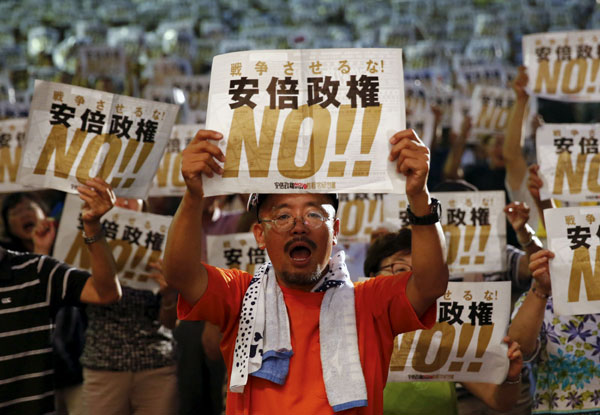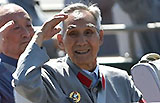Japan PM to issue statement marking WWII end
(Xinhua) Updated: 2015-08-14 11:39
|
 |
|
People hold placards denouncing Japan's Prime Minister Shinzo Abe's security-related legislation during an anti-government rally in Tokyo July 24, 2015. [Photo/Agencies] |
In late 2013, Abe, who is widely seen as a historical revisionist, visited the Yasukuni which enshrined 14 Japanese convicted war criminals during WWII among other Japanese war dead. The culprits of Japan's wartime aggression are considered as the country's founding father or "gods" in the shrine.
The prime minister also does not prevent his cabinet ministers from paying homage to the notorious shrine that is seen as the symbol of Japan's past militarism.
Former Prime Minister Junichiro Koizumi, who followed the Murayama Statement in his script marking the 60th anniversary of the WWII end, repeatedly visited the shrine, irking the two neighboring countries and freezing China-Japan ties for years.
It is notable that the occasion of the 70th anniversary of the war end is thought to be an perfect opportunity for Japan to step forward to seek full reconciliation with China and South Korea over the decade-old historical issues, and the matter is that whether Japan could walk its words, if Abe directly apologized for the country's past wrongdoings in his upcoming statement.
On Wednesday, UN Secretary General Ban Ki-moon called on Japan to reflect on its war history in order to move forward, according to Ban's spokesperson at a briefing at the UN headquarters Wednesday.






